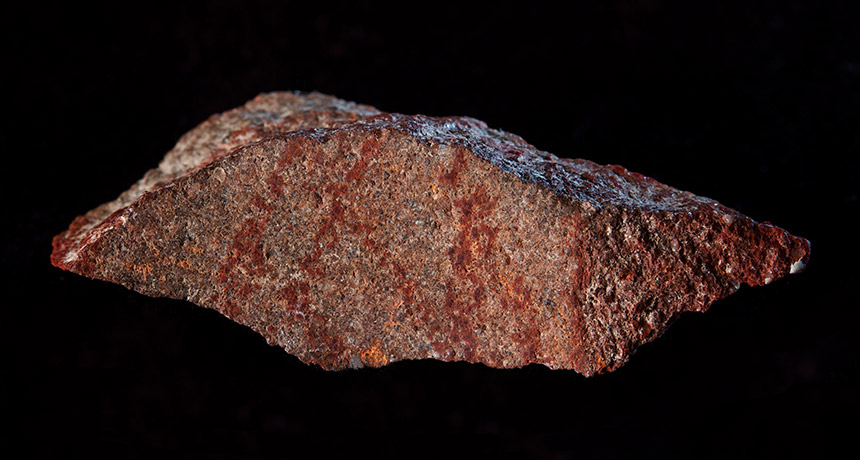
The faded pattern consists of six upward-oriented lines crossed at an angle by three slightly curved lines, the researchers report online September 12 in Nature. Microscopic and chemical analyses showed that the lines were composed of a reddish, earthy pigment known as ocher.
The lines end abruptly at the rock’s edges, indicating that a larger and possibly more complex version of the drawing originally appeared on a bigger stone, the researchers say. Tiny pigment particles dotted the rock’s drawing surface, which had been ground smooth. Henshilwood suspects the chunk of rock was part of a large grinding stone on which people scraped pieces of pigment into crayonlike shapes.
Crosshatched designs similar to the drawing have been found engraved on shells at the site, Henshilwood says. So the patterns may have held some sort of meaning for their makers. But it’s hard to know whether the crossed lines represent an abstract idea or a real-life concern.


